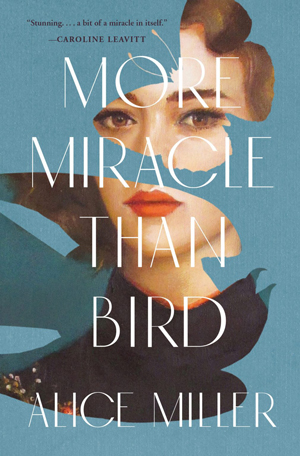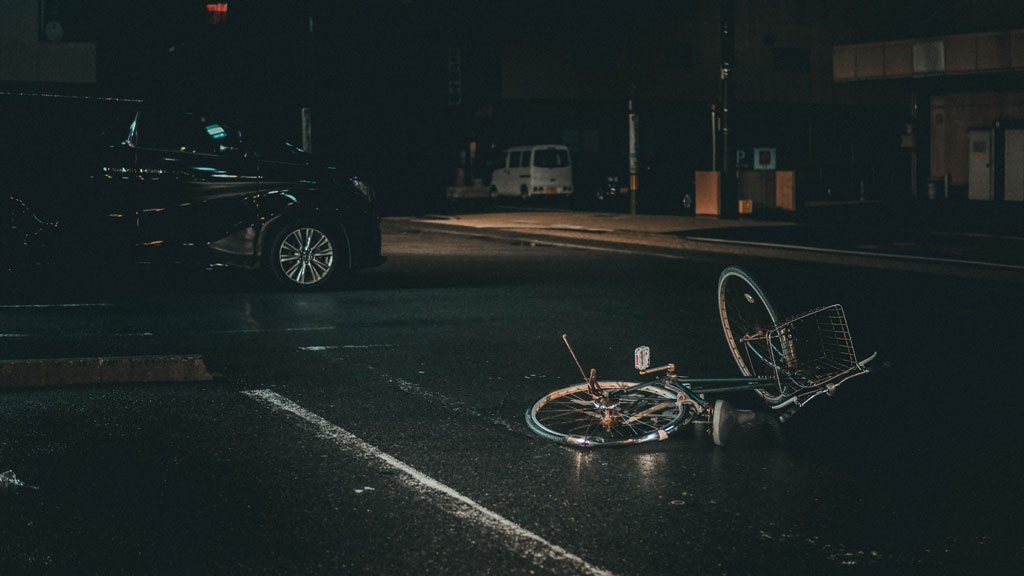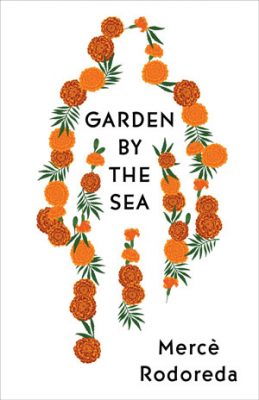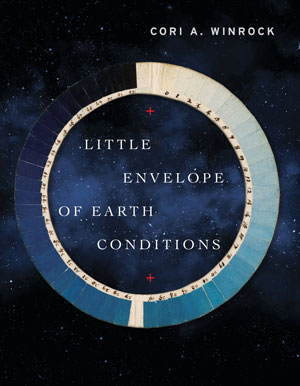I LIKE IT by Jinna Han

Jinna HanI LIKE IT If there was a fly on the wall right now, my eyes would be following it. As there isn’t, I resign myself to banging my feet against the chair leg and watching my pencil roll across…

Jinna HanI LIKE IT If there was a fly on the wall right now, my eyes would be following it. As there isn’t, I resign myself to banging my feet against the chair leg and watching my pencil roll across…

Steve GergleySUNRISE Manga Today I stole a violin and sold it for drugs. It belonged to a blond-haired kid no older than fifteen. I took it after he walked out of church and started masturbating to a manga in the…

Neal J. SuitHouse of Mirrors The police cruiser appeared as the dusty orange of dusk settled. The car’s lights and sirens remained off because it wasn’t an emergency. Rumors swept across the town. Katie had run away. She was abducted.…

Christina Berke13 WAYS OF LOOKING AT SEX “Abstinence,” my health teacher says. “It’s the only guaranteed way to avoid STDs and pregnancy.” My mother never gives me the talk; my father’s girlfriend slides a book to me about changing bodies.…

B. Bilby GartonAURAL Before I learned that wounded birds are rarely rehabilitated in treehouses, I studied acoustics in a small yellow farmhouse. It started out elementary, like any other subject. A man’s loud voice: this is anger. Mother’s soft voice…

Samantha CampagnaA CLAMOR OF VOICES Cars are backed up two blocks in line to pull into a big-box store. It’s still cold in the suburbs of Chicago and a frenzied mob of people rushes into the store in puffy coats…

Susan HamlinINSTRUCTIONS FOR COHABITATING WITH AN AGING PARENT Number of people required: One still-independent ninety-year-old mother One more-than-middle-aged child Necessary tools: 10 x 12-foot guest room that used to be your brother’s bedroom (yours is now “the computer room”). 6…

Meg Pokrass & Aimee ParkisonTRUCKIN’ Truckers’ wives warned me it was a lonely life, unless I was willing to travel with you. When we go truckin’ together in my mind, I see so much life out the truck windows as…

Dylan CookTHE GREENER MY GRASS Maureen could clearly remember the day in December the two young professors moved in across the street and how much more she respected them back then. It was a shame that Mrs. Graham had passed,…

Mike NeesFLARE As she clocks in, Jillian looks up from the computer to find a wrinkled envelope dangling in her face. Her chest tightens. “Thank god you’re here,” Sonya says, waiting for her to take it. “Everyone’s calling out.” Jillian…

Anthony AgueroBEING WHOLE AFTER A DIAGNOSIS I. Diagnosis Someone likens your body to soured-meat, Flies swarming the thighs, a hint of cinnamon Brushes just underneath your nose. ELISA, has confirmed the inevitable. O you enzyme-linked immunosorbent assay. II. Treatment Plan…

Michael GreenSOMETHING’S GOTTA CHANGE a Visual Narrative Michael Green is a physician and artist who lives and rides his bicycle throughout Central Pennsylvania. He is a founding Board Member of the Graphic Medicine International Collective, an organization devoted to the…

Meggie RoyerTHE SECOND STEP That night, the door so waterlogged with rain it stuck for hours, hinges flush with the frame, a mouth against spine. In the woods that year, several syringes we could never place, some long-ago nectar unraveling…

Heikki HuotariAS TRANSPARENT AS IT GETS Just because you’re parasailing doesn’t mean this call’s not coming from inside your house. As mirror neurons turn, I’m casting demons and fly fishing with them. In each multi-facet is…

Amy Beth SissonDISSECTION After school my teacher helped me pull the pink downy breast feathers to clear the skin and make an incision She put the scalpel into my hand smaller than the body pinned to the black wax tray…

Peter WearHAVANA, ILLINOIS, AUGUST 2020 White clouds, so many white clouds pause above August’s green cornfields– an armada of triremes, sails cast in marble, cross empty skies armies dreamed held destinies that might outlive them, mortal sons clad in fathers’…

travis tateWHERE I WAIT FOR YOU The river before anything else, the glazed sun emerging gently from evening. You, brightly looking towards what I hope is me or, some future tense self where I’m dangling slightly less from crisp edges.…

Nonfiction by Betsy Bonner, reviewed by Laura Smith THE BOOK OF ATLANTIS BLACK (Tin House) “Remove toxic people from your life” is one of today’s modern mantras. It’s easy advice to give, but it can be impossible to follow. Author…

 I approached More Miracle than Bird, Alice Miller’s debut novel about W.B. Yeats and his erstwhile muse, Georgie Hyde-White, as a poet interested in learning about Yeats and the woman who influenced his work. Although we get insights about the poet and his work, the novel is more about the journey of his muse, a naïve but determined rebel attempting to thwart the traditional roles that have been carved out for her. We see her youthful struggles and missteps, but by the novel’s close, we see a woman who has learned that holding onto the philandering Yeats means reshaping herself into someone who can contribute to his work.
I approached More Miracle than Bird, Alice Miller’s debut novel about W.B. Yeats and his erstwhile muse, Georgie Hyde-White, as a poet interested in learning about Yeats and the woman who influenced his work. Although we get insights about the poet and his work, the novel is more about the journey of his muse, a naïve but determined rebel attempting to thwart the traditional roles that have been carved out for her. We see her youthful struggles and missteps, but by the novel’s close, we see a woman who has learned that holding onto the philandering Yeats means reshaping herself into someone who can contribute to his work.

Six Days in November by Emily Steinberg Emily Steinberg is an artist, writer, and educator whose work has been shown across the United States and Europe. She has been named the first Artist in Residence at Drexel College of Medicine…

 VIOLATION
VIOLATION“Excuse me, Miss, is this yours?”
I turn and see the large, inquisitive eyes of a woman behind me. I’ve been startled from my thoughts, and I am briefly confused as my eyes follow her outstretched arm, down her red sleeve, to the pointed tip of her manicured finger. My neck scarf has fallen to the floor. I bend awkwardly over my carry-on to stuff it back into my bag, deeper this time.
I smile at her, looking past her eyes at the gray-streaked red hair that hangs limply at the sides of her temple. “Thank you.”

Evan AndersSPEAKING OF SUNFLOWERS the world is bare bones an orphan after rage relinquishes her arrow. magnolias ago, sunflowers stormed my mouth every night an attempt to take ownership of the sun every tide stumbling into decimation a collied exists…
Chi Siegelmy lover starts seeing after a.b. yehoshua’s “facing the forests” my lover starts seeing our house as a forest. my lover begins counting by the tree its singing throbs with more than words, whisperings of warm &…

Freesia McKeeELEVEN MICRO-MEMOIRS FROM THE PANDEMIC 1. To mix the kimchi, I used two precious latex gloves, so that later, I could take out my contact lenses. 2. Took a long walk by myself. At the crosswalk on Biscayne, someone…

Text by J’nai Gaither, Illustrated by Phoebe Funderburg-MooreREPARATIONS WINE LABEL Click on images for full-size. Full Text of Label: Blacks in Wine Matter Reparations Red Wine United Colors of America Nappy Valley 2020 401mL …

K. S. LokensgardFIVE WAYS THE WORLD ENDS By Drought The year the rains never came, the ground dried up and cracked wide open. Dust settled on laundry hung in the yards and you appeared on my porch, hands clasped. In…


You can try the gloves,
but the gloves will work
two hours tops. The grape juice
has crept inside of them.
Your hands are being braised now.
Your fingernails have become
the consistency of cake frosting.
The tips of your fingers are translucent.

Mark Danowsky and John SingletaryTERRA IN FLUX: An Ekphrastic Collaboration The word ekphrasis comes from the Greek for the description of a work of art produced as a rhetorical exercise, often used in the adjectival form ekphrastic. It is a…


It started off with cats, which was what my cellmate Rudy had, til his cat shrunk down to the size of a kitten, then a mouse, then disappeared altogether. Every once in a while, at night, besides the usual squeaks of the roaming guard’s boots, I’d hear squeaks of a different kind. Through the slight light at Rudy’s bunk, I could see where he lay with his head propped on one hand, the other hand cupped in front of a squinted eye. An eye he’d wink at me before putting his finger in front of his mouth and saying, “Shhhh.”

Music by Richard Casimir, “Antumbra” (poem) by Herman BeaversTHE ESPERANZA PROJECT In classical music, a fermata is a pause of unspecified length printed above a note or rest. It is represented by an eyebrow above a dot, nicknamed a “birdseye”…

Steph JonesA SACK OF POTATOES, THE TIRED FARMER, & THE MIGHTY WORLD: A Visual Narrative [sg_popup id=”44608″ event=”inherit”][/sg_popup] Steph Jones is the Assistant Farm Manager at Pennypack Farm & Education Center, a thirteen-acre non-profit organically growing vegetable farm in Horsham,…

Rosemary KitchenFIELD NOTES FOR THE MAGICIAN: SLEIGHT OF HAND I. Mother teaches me to read the ages of bald women hooked to IV stands in cracked knuckles, the prominence of veins in fingers and wrists. We whisper, like the palmists…


She spread her legs and the neon blue lights shifted like we were underwater. She was wearing underwear, but they were crotch-less, white elastic stretching around her hips to hold her tips. Her hair was brown. I don’t like brunettes, especially not with how short she kept it, just barely brushing her shoulders, yet I watched her with interest. She stood up and moved to a pole languidly, her steps not in sync with the beats of the music. She was in her own world, she spun around the pole, her head hung like it was out a window, letting the breeze blow through it. She shimmied down the pole and then she was seated again, in front of me, her legs splayed out, she lifted her butt once, twice, maybe she thought that it counted as dancing, and then she went back to the pole.


My freshman year of college I lifted weights and kickboxed five days a week. The kickboxing gym was four miles down Riverside and I biked there every weeknight. There wasn’t a bike lane on Riverside and cars honked. My brakes screeched.
On my way home I stopped for Taco Shack. I tried doing the drive thru once but they said I needed a car to use the speaker box so I ate inside. I was drenched and sometimes bruised from the workouts and the staff looked at me while I ate the burritos.


I.
And one day, just like that, you will make time.
You will make time to dust off the cookbooks you’ve never used. You will pick up the fat French tome and crack it open and it will smell like your grandparents' kitchen. The papery redolence of oil, roasted chicken. The splattered windows of grease stains as holy as stained glass. Time to finger the recipes their pencils annotated. Time to make, and make do, to use what you have: time trapped in a half-forgotten bottle of Muscadet.
You will make time, because suddenly, you, and the rest of the world, will have time.
Lured by economy and the blind contingency of time and place, you will come to a recipe for rillettes. Pâté-tender pork preserved under a layer of lard. Peasant’s butter back in the day, the fat cap keeping the meat for months. (Time to seek out foods that will stand the test of time.)
After a perilous excursion to the grocery store and a trip to the butcher (by comparison heaven on earth), you will be ready to set the cure on your inch by inch chunks of pork shoulder: salt, garlic, ginger, coriander, black pepper, and white wine. Plus the unexpected warmth of cinnamon, nutmeg, and clove.
And this is how you will set the cure. And this is how the beginning of time is made. And now, you must wait three days.

Melissa Benton BarkerSOME OTHER CONTINENT The drink was called Spring Breeze. Elin had three of them at brunch, but Lucy never drank in the morning, so she’d missed it. It was the third night of a weekend cruise Elin had…

Sue MellINTERVAL Nine seconds to warm the applesauce for my mother’s morning medication. To wrestle my fury, replace it with a light-hearted care. Even as a kid I shied away from her clinging hand; now her need for me is…

Roberta BearyTHE YEARS GO BY IN SINGLE FILE Maybe behind your house was a rock garden where you ran when your mother shooed you away where you loved the rosebush but hated the thorns and always the bees buzzing a…

THE HOUSE STILL STANDS
By the time I tell him, it’s old news and too late, but that’s why I waited to tell. I needed to know. He stalks me through the house to ask all about it. Here? he says, and I say, Yes, and wince as his fist punctuates the hallway plaster. The white dust drifts down. It settles.


My mother became a maid for a rich, white lady a few months after my father bounced. She worked cleaning the lady’s house—vacuuming, sanitizing toilets in a bathroom with heated tiles, dusting—two days a week for over a month, while my brother and I went to school. The bills, however, didn’t seem to be getting any smaller; but as luck would have it, the lady had also invested in other properties, including a one-story office building that housed a local paper company amongst others. It turned out that the contractor the lady hired to do after-hours janitorial work was under investigation and had closed their offices and laid off their employees. Unsure of what to do, the woman had asked my mother if she knew anyone who owned a janitorial service. Needing the money, my mother lied and said that she did, but that it was a very small company that consisted of only three people. What she didn’t mention was that the people were me, her, and my brother.

Susan FrithWELCOME CENTER: (Some Notes for Our Visitors) 1. Greetings. Preachers, poachers, stargazers, we don’t much care who you are. You’re here now, so go on, take a key. See if it fits any of the locks. If so, the…

Benjamin SoileauFOXLEY REDUX Foxley’s uptight on the glass, watching for the hard silver wink of Daddy’s Bronco. Mama said his ass was grass. He heard her on the phone tattling and when she brought it to him and he put…

Kim MagowanGARE DU NORD, 1988 The girl escorts her boyfriend to Gare du Nord, where he will take a train to the coast and then a ferry back to England—this is years before the Chunnel will be built. He is…

Nicole GreaveEIDOLON She said there are some things you will always be, like Italian, some skills interchangeable: folding underwear and trussing a chicken, some days for darkness. I remind her of her dead daughter. Her true character! Everything is a…

 Let’s be honest—the chances of walking into a bookstore and finding a literary lesbian romance are low. You’re more likely to find an entire cookbook consisting of sourdough recipes. If you want the book to feature characters of color, your odds sink even lower. Emily Hashimoto’s debut novel promises to fill this lacuna. A World Between (Feminist Press, forthcoming) follows the relationship between two women of color, Leena and Eleanor, through college and adulthood. The novel alternates between Leena’s and Eleanor’s perspectives, revealing the yearnings and anxieties of each as they grow apart and together.
Let’s be honest—the chances of walking into a bookstore and finding a literary lesbian romance are low. You’re more likely to find an entire cookbook consisting of sourdough recipes. If you want the book to feature characters of color, your odds sink even lower. Emily Hashimoto’s debut novel promises to fill this lacuna. A World Between (Feminist Press, forthcoming) follows the relationship between two women of color, Leena and Eleanor, through college and adulthood. The novel alternates between Leena’s and Eleanor’s perspectives, revealing the yearnings and anxieties of each as they grow apart and together.
There is much to marvel at in this debut. Hashimoto is adept at plotting. She pulls Leena and Eleanor apart with narrative developments that are both unexpected and believable. The novel heightens tension as we long for the two’s reunion despite circumstances, family expectations and their own struggles. Eleanor and Leena’s conflicts are heartbreakingly realistic. Their fights remind us that in real life there are no villains or heroes, just two people whose earnest feelings clash. Hashimoto deploys details masterfully. She can bring characters to life with just a handful of words. When Leena cries in her mother’s car, she turns away because her mother “couldn’t stomach emotions of this magnitude.” The novel’s dialogue captures the rhythms of young people’s conversations, both the beat and the crescendos.
A World Between’s greatest triumph is capturing the shape, color and texture of attraction between two women.
Despite these strengths, Leena and Eleanor’s honest, multi-stranded story is let down by the novel’s prose. Hashimoto’s similes fall flat as often as they succeed, and she pushes metaphors too hard. After describing how Leena responds to Eleanor’s body as if calculating an equation, Hashimoto writes, “If two trains were headed to Boston at one hundred miles per hour, how fast would Eleanor come?” There are awkward phrases which aspire to the literary (“she took bite of her tongue”), and sometimes the writing elicits pure confusion (“the streets where bars hummed and clothing wore her fellow New Yorkers”). The novel could easily lose a hundred pages. In other places, however, the words delight—“It was quiet for a long time, dust settling on the ellipses of the moment.”

William SulitDUMP TRUMP: Illustrated T-Shirts Many artists have the ability to verbalize their thoughts with great clarity and eloquence—sadly, I’m not one of those. This must be a great source of frustration for my wife Beth, who is an extremely…

 When I began my part-time job at a botanical garden in the fall of 2017, I had next to zero gardening experience, and I knew little about the different flowers and trees that grow in the Piedmont region of North Carolina. I showed up that first day completely unprepared, without so much as a pair of gloves. But I was lucky enough to be mentored by David, a man in his early thirties from Maine, who’d been gardening for several years. David explained to me the paradoxical nature of caring for gardens: gardens need constant attention, but they bear their beautiful fruits ever so slowly. At the heart of David’s message was that gardeners are transitory, but gardens remain. Our decades are their hours.
When I began my part-time job at a botanical garden in the fall of 2017, I had next to zero gardening experience, and I knew little about the different flowers and trees that grow in the Piedmont region of North Carolina. I showed up that first day completely unprepared, without so much as a pair of gloves. But I was lucky enough to be mentored by David, a man in his early thirties from Maine, who’d been gardening for several years. David explained to me the paradoxical nature of caring for gardens: gardens need constant attention, but they bear their beautiful fruits ever so slowly. At the heart of David’s message was that gardeners are transitory, but gardens remain. Our decades are their hours.

 I read Little Envelope of Earth Conditions in late June, when COVID-19 cases were skyrocketing in the world and the nation—and at home. The May 24th New York Times front page, which listed the names of the 100,000 American coronavirus victims—a very public display of mourning and grief—was at the forefront of my memory, as were the more personal ways that I was mourning the loss of traditions, previous ways of life, time spent with grandparents and my fellow high school students alike.
I read Little Envelope of Earth Conditions in late June, when COVID-19 cases were skyrocketing in the world and the nation—and at home. The May 24th New York Times front page, which listed the names of the 100,000 American coronavirus victims—a very public display of mourning and grief—was at the forefront of my memory, as were the more personal ways that I was mourning the loss of traditions, previous ways of life, time spent with grandparents and my fellow high school students alike.
Throughout her second collection of lyric poems, Little Envelope of Earth Conditions, Cori A. Winrock explores the experience of mourning: specifically, the idea that grief is an ongoing, recurring experience that never truly goes away. It is simultaneously universal and intensely personal. She tells a compelling narrative about the loss of a mother and child, spanning from the vast emptiness of space to an ambulance in a parking lot to a placid meadow on the edge of a lake. The

 In her debut novel, Ecuadorian writer and journalist María Fernanda Ampuero takes an unflinching and intimate look into the turbulent homes and lives of Latin American women. By placing her powerful, moving stories in settings like violent domestic households or lower income neighborhoods, the characters in Ampuero’s Cockfight combat their situations with acts of bravery, loss, and love. As the characters seem to suffocate in their environments, there are acts of bravery, loss, and love. The idea of a happy family is a myth and men are depicted as lecherous, terrifying creatures of the night. The narrators often are maids, young girls, and women wrenched into horrifying situations such as forced incest, rape, and human trafficking.
In her debut novel, Ecuadorian writer and journalist María Fernanda Ampuero takes an unflinching and intimate look into the turbulent homes and lives of Latin American women. By placing her powerful, moving stories in settings like violent domestic households or lower income neighborhoods, the characters in Ampuero’s Cockfight combat their situations with acts of bravery, loss, and love. As the characters seem to suffocate in their environments, there are acts of bravery, loss, and love. The idea of a happy family is a myth and men are depicted as lecherous, terrifying creatures of the night. The narrators often are maids, young girls, and women wrenched into horrifying situations such as forced incest, rape, and human trafficking.

 Samantha Mabry’s Tigers, Not Daughters is a modern-day ghost story that follows the Torres sisters—Jessica, Iridian, and Rosa—one year after the untimely death of their oldest sister, Ana. Wracked with grief, the Torres sisters ache for Ana; but their profound sadness is met with unexpected events that eventually make their sister’s presence known: raps on doors and windows, writings on the walls, sensory overload, recurring storms, flickering lights, dying animals, and one escaped spotted hyena lurking in the darkness of their neighborhood in Southtown. Ana reappears in a way the girls can’t begin to imagine and returns with a vengeance they don’t understand. Mabry tells a riveting tale of three sisters who discover the power of sisterhood and what it means to stay together despite insurmountable, unnatural odds.
Samantha Mabry’s Tigers, Not Daughters is a modern-day ghost story that follows the Torres sisters—Jessica, Iridian, and Rosa—one year after the untimely death of their oldest sister, Ana. Wracked with grief, the Torres sisters ache for Ana; but their profound sadness is met with unexpected events that eventually make their sister’s presence known: raps on doors and windows, writings on the walls, sensory overload, recurring storms, flickering lights, dying animals, and one escaped spotted hyena lurking in the darkness of their neighborhood in Southtown. Ana reappears in a way the girls can’t begin to imagine and returns with a vengeance they don’t understand. Mabry tells a riveting tale of three sisters who discover the power of sisterhood and what it means to stay together despite insurmountable, unnatural odds.
What stood out to me while reading Tigers, Not Daughters was how colorful and tangible each of the Torres sisters is. Their characterization is well-rounded, Mabry vividly telling the story through the individual perspectives of each sister, as well as including a fourth perspective of a character that watches them from afar. Each sister is unique in not just who they are, but in how they grieve over the loss of Ana.